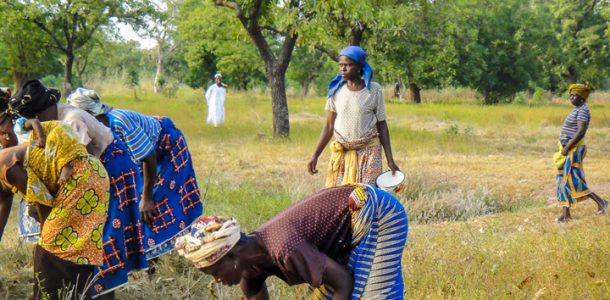
Shea production in the drylands of northern Ghana help reduce poverty through local sale and exports. It as well increases food security among the population by providing income for subsistence. The Shea tree has characteristics that make it a resistant crop to climate variability and change, and its genetic diversity gives it high spontaneous adaptive capacity and enables domestication. For women in the West Gonja district of northern Ghana, the sale of Shea – processed or unprocessed, is integral to women’s generation of cash income.
This study aims to understand the gendered division of labor within the Shea market value chain, focusing on how the specific roles of women from nut gathering, crushing, processing into oil and/or butter for sale locally and internationally as well as only picking for large scale buyers, influences the wellbeing of the women who are the primary source of the raw material in Shea production (Shea nut).
Team Members
- Gertrude Frimpomaa Owusu – University of Ghana
- Rahinatu Sidiki Alare – University for Development Studies (Navrongo)
- Moses Asamoah – University of Ghana
- Yaw Atiglo – University of Ghana
- Caesar Agula – University of Ghana
Co-I Mentors
- Samuel Codjoe – University of Ghana
- Laura Lewis – University of Southampton
- Mawuli Dzodzomenyo – University of Ghana
- Katherine Vincent – Kulima Integrated Development Solutions

